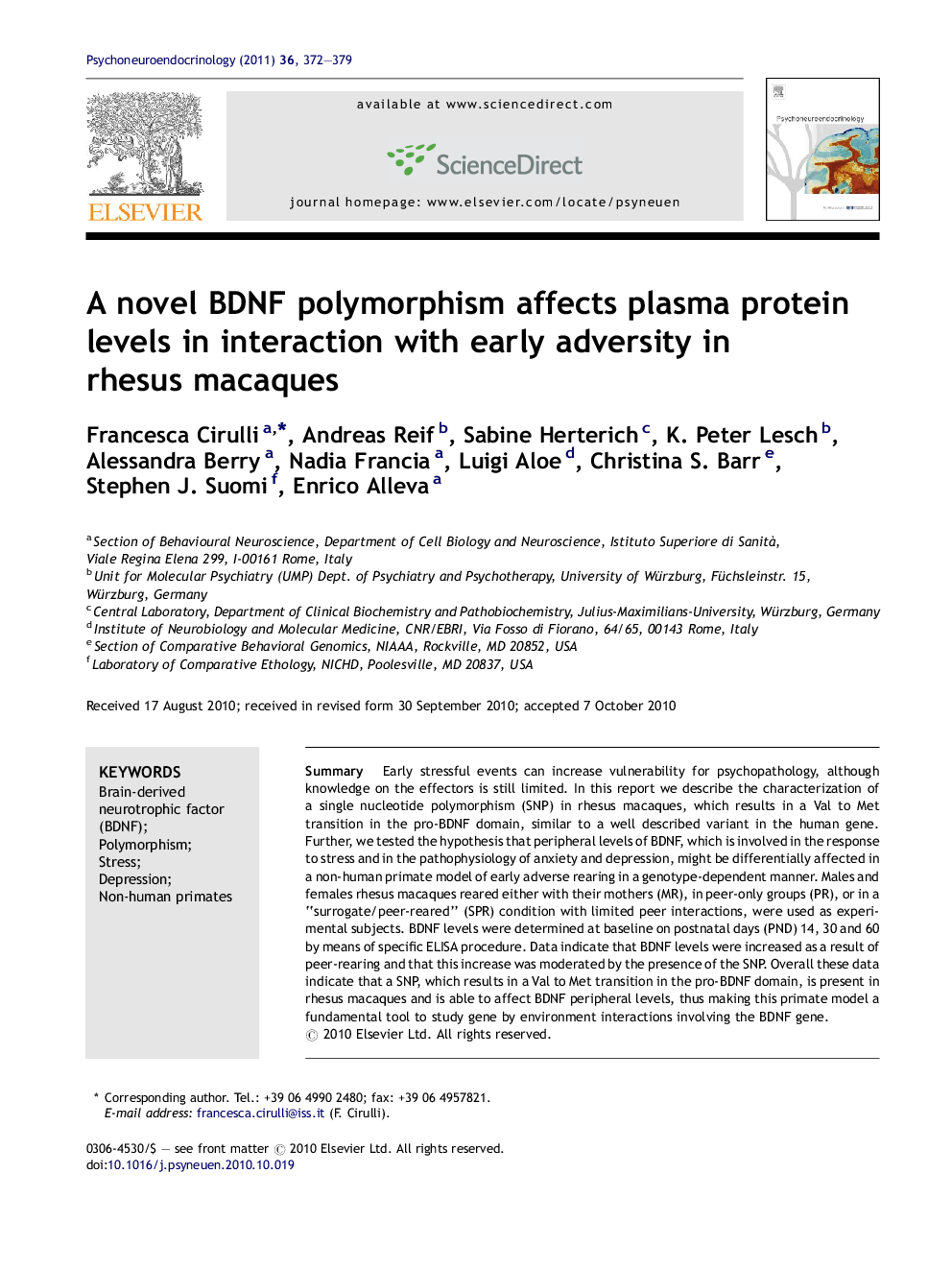| Article ID | Journal | Published Year | Pages | File Type |
|---|---|---|---|---|
| 335943 | Psychoneuroendocrinology | 2011 | 8 Pages |
SummaryEarly stressful events can increase vulnerability for psychopathology, although knowledge on the effectors is still limited. In this report we describe the characterization of a single nucleotide polymorphism (SNP) in rhesus macaques, which results in a Val to Met transition in the pro-BDNF domain, similar to a well described variant in the human gene. Further, we tested the hypothesis that peripheral levels of BDNF, which is involved in the response to stress and in the pathophysiology of anxiety and depression, might be differentially affected in a non-human primate model of early adverse rearing in a genotype-dependent manner. Males and females rhesus macaques reared either with their mothers (MR), in peer-only groups (PR), or in a “surrogate/peer-reared” (SPR) condition with limited peer interactions, were used as experimental subjects. BDNF levels were determined at baseline on postnatal days (PND) 14, 30 and 60 by means of specific ELISA procedure. Data indicate that BDNF levels were increased as a result of peer-rearing and that this increase was moderated by the presence of the SNP. Overall these data indicate that a SNP, which results in a Val to Met transition in the pro-BDNF domain, is present in rhesus macaques and is able to affect BDNF peripheral levels, thus making this primate model a fundamental tool to study gene by environment interactions involving the BDNF gene.
